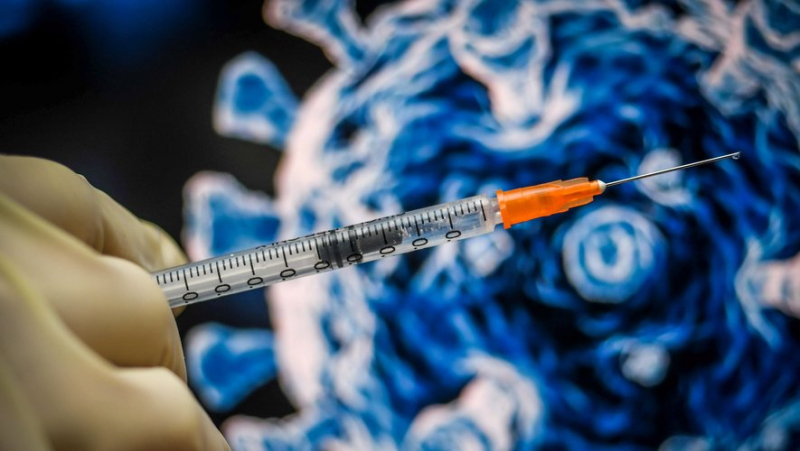On January 11, 2020, China announced the first death from Covid: mutations, risks, mortality, vaccine… 4 years later, we take stock

Peu de risques de mutations inquiétantes du coronavirus désormais. Midi Libre – MiKAEL ANISSET
On January 11, 2020, China announced the first official death of a Covid victim, a 61-year-old man who frequented the Wuhan market. Four years later, the pandemic has officially caused the deaths of 14.9 million people worldwide according to figures from the World Health Organization (WHO) and 162,868 in France. And today ? Jacques Reynes, infectious disease specialist at Montpellier University Hospital, takes stock of the situation.
Mutations of the virus, threat to vulnerable people, effectiveness of vaccines, risks of emergence of new pathogens… Jacques Reynes, infectious disease specialist at Montpellier University Hospital, was on the front line during the Covid epidemic . He takes stock.
"We can still die from Covid today"
"Yes, we can still die today", confirms Professor Jacques Reynes, in the infectious diseases department at Montpellier University Hospital. "But there are few people hospitalized and few serious forms".
Monday January 8, 7 Covid patients were hospitalized in the intensive care unit of the University Hospital. "We can die, but these are generally very old people or people with risk factors, obese people, those who suffer from heart and respiratory failure, immunocompromised people", indicates the " ;#39;infectiologist, while the virus is circulating very actively.
At the end of 2023, Public Health France indicated that the number of visits to emergency departments for suspected COVID-19 was 4,505, or 1.3% of the total. The number of hospitalizations was 1,902, or 2.7% of all hospitalizations. The regional health agency does not communicate on the death toll in the region.
Vaccination and barrier gestures at half-mast
"We are exposed if we are fragile, and have not recently been in contact with the virus, have not been vaccinated' quot;. But the vaccination rate is very low today: among people aged 65 and over, it is 28.7% (21% of 65-69 year olds, 26.4% of 70-74 year olds , 34.2% of those aged 75-79 and 34.5% of those aged 80 and over). Being vaccinated "could" yet reduce the risk of long Covid.
"The RNA vaccine is the most effective", insists Jacques Reynes, who underlines that in France, we vaccinate today with the Pfizer vaccine, adapted to the Omicron strain, which circulates in the vast majority.
Well-established support
The management of a fragile patient is now well established: "We have corticosteroid therapy, d&# 39;antiviral treatment, Paxlovid, and high-flow oxygen therapy, specifies Professor Reynes.
The system is "normalized", it no longer causes disorganization in health establishments. "What makes things more complicated is the current joint circulation of Covid, flu, RSV and the Mycoplasma bacteria", specifies Jacques Reynes.
Tomorrow, a more dangerous coronavirus?
Jacques Reynes does not believe in new mutations likely to make the virus more dangerous than it is today: "A hyperviolent strain ? Everything is possible in medicine, but it's unlikely. The more a virus mutates, the less virulent it is, it does everything to continue living, recalls the doctor, who does not say that the epidemic is behind us.
On the other hand, the current situation seems conducive to the emergence of another pathogen: "We are taking fewer preventive measures and global trade has resumed. .. we must expect to see the appearance of a new coronavirus or an influenza virus, an RSV…"
A bacteria ? "It'is less likely" for Jacques Reynes, who is nevertheless concerned about the appearance of drug-resistant strains, in a context of overconsumption of antibiotics. One last fact weighs on the situation: global warming will allow "vectors of taking new territories", Jacques Reynes cites for example the risk of seeing an epidemic of hemorrhagic fever develop.




